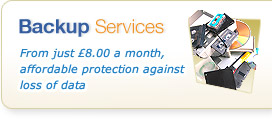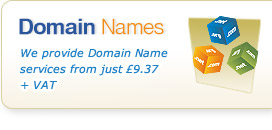Knowledgebase & FAQs

<< Back to FAQs in this Category
Connectivity - Broadband Services
Troubleshooting Broadband Issues, help with connection issues or making changes to your Broadband Service
Why doesn't my Broadband get full speeds?
The speed you can achieve can vary for a number of reasons, not all of which we can control.
There are a few things to consider - so make a fresh cuppa because there are lots of things to consider:
PART 1 - Your Broadband Connection
=====
The broadband connection speed is often "up to" - this is to say that the advertised speed is the maximum it could achieve in perfect conditions. Most normally, this is the way they're advertised because the speed you get is heavily dependent upon the physical cabling that serves your premises, and the distance you are from the connection point - the further away you are, the slower the typical speed. There are a couple of exceptions to this rule. Below are the typical rules:
- For Standard Business Broadband, the "up to" is usually "8 meg" - typical on more rural phone exchanges connected to the legacy network that BT operates, or "24 meg" the maximum possible on more modern connected exchanges. You'll only see speeds around those headline numbers if you have a short line to the telephone exchange - as your connection goes all the way back to that exchange - and remember it doesn't go "as the crow flies" and sometimes takes a less than direct route.
- For Fibre Broadband - typically called "FTTC" the maximum is normally either "40 meg", or "80 meg" - depending on the service plan you have. There are some cases where it will be a maximum of "55 meg" too. Again, you need a pretty good line and short distance. This type of broadband isn't true fibre - so old wire (copper) cable serving your premises remains in use, and then goes to a Fibre Cabinet - much closer than regular broadband where it goes to the phone exchange. This means you can get good speeds, but FTTC is able to cover a much shorter distance at a useful speed - even 200 metres will massively hurt the speed you can get.
- For true Fibre Broadband - often known as FTTP - you have actual fibre all the way to the router. This normally means "up to" at the connection doesn't apply as the speed is constant and everyone can get it. This is typically sold in speeds of 100, 200 or 300 meg.
- For Coaxial Connections - normally only sold by Virgin Media - the connection speed is more like native fibre - you typically do get the raw speed to your router.
PART 2 - The Web Site or Service you're connecting to
=====
The service you're connecting to might not be able to go as fast as your connection can - that's particularly true when you have really fast connections, or when the site or service is being overwhelmed with demand.
When this is the case the speed you get is ultimately limited by the remote service you're trying to use and not the connection you have.
PART 3 - Your Wireless, Network or Cabling
=====
Your Wireless Equipment might not be able to go as fast as the broadband can - this is increasingly true as broadband connection speeds rise - so it might be as simple as your wireless equipment not being "man enough" for the job - and the bundled routers you often get are often not sufficient. Also, wireless is a radio technology and so just like your mobile phone signal suffers from interference, walls and other factors that hurt the speed - so even if you have really good wireless, you might find the building or room you're in hurts that speed.
It might also be the case that the device you're using can't go as fast as your connection - we're seeing this more and more with people who get connections with 200 meg and above connections - not every device can do it - and you'd be amazed to learn that it's not normal yet for them to be capable of it - especially if they're not relatively new.
If you're using a cabled connection you could also have issues if you have a really quick internet connection but have old or congested networking - using home plugs is often a bad thing as they're rarely about to achieve anywhere near the headline speed they advertise, using cheap switches etc or those that can only achieve 100 meg when you have a faster connection just doesn't work. Your device also needs to have a gigabit network connection (adapter) if you want really quick speeds on these fast connections.
As you can see, there are many factors that affect the speed you can achieve - so if you don't get the broadband speed you expect you might need to look in more than one place.




